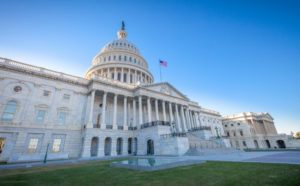
Congress on Thursday evening passed a stopgap funding bill to keep the government open through Feb. 18, while lawmakers are now considering a potential new path for moving the National Defense Authorization Act (NDAA) forward after the bill stalled out this week in the Senate over amendment disagreements. The House voted 221 to 212 and then the Senate voted 69 to 28 to approve the latest continuing resolution, a day before the government was set to shut down, providing lawmakers…

 By
By 











